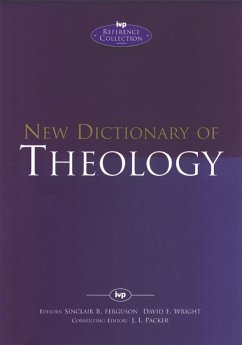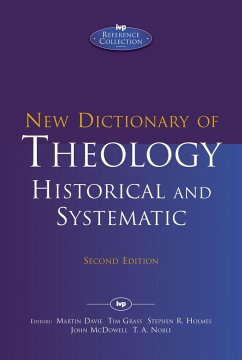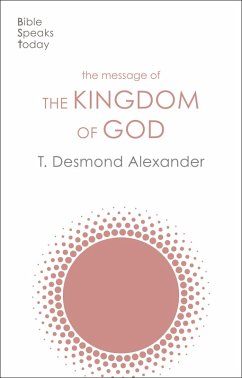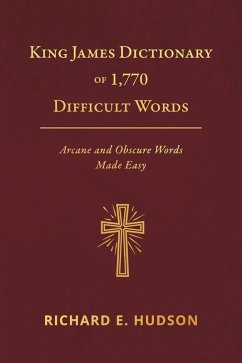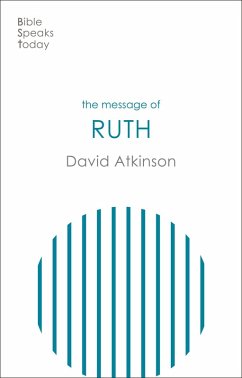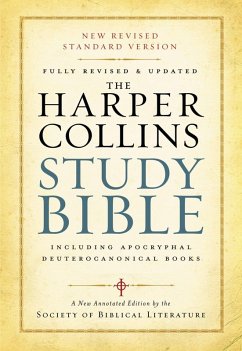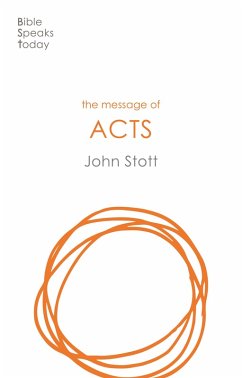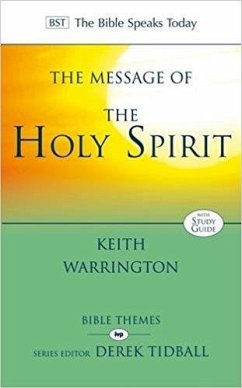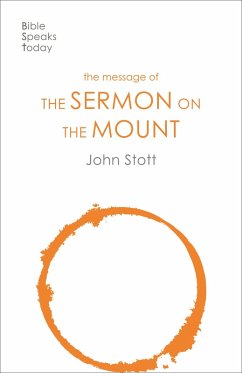
Dictionary of the Old Testament: Prophets (eBook, ePUB)
A Compendium Of Contemporary Biblical Scholarship
Versandkostenfrei!
Sofort per Download lieferbar
23,95 €
inkl. MwSt.
Weitere Ausgaben:

PAYBACK Punkte
12 °P sammeln!
The writings of the prophets make up over a quarter of the Old Testament. But perhaps no other portion of the Old Testament is more misunderstood by readers today.For some, prophecy conjures up knotted enigmas, opaque oracles and terrifying visions of the future. For others it raises expectations of a plotted-out future to be reconstructed from disparate texts. And yet the prophets have imprinted the language of faith and imagination with some of its most sublime visions of the future - nations streaming to Zion, a lion lying with a lamb, and endlessly fruiting trees on the banks of a flowing ...
The writings of the prophets make up over a quarter of the Old Testament. But perhaps no other portion of the Old Testament is more misunderstood by readers today.
For some, prophecy conjures up knotted enigmas, opaque oracles and terrifying visions of the future. For others it raises expectations of a plotted-out future to be reconstructed from disparate texts. And yet the prophets have imprinted the language of faith and imagination with some of its most sublime visions of the future - nations streaming to Zion, a lion lying with a lamb, and endlessly fruiting trees on the banks of a flowing river.
We might view the prophets as stage directors for Israel's unfolding drama of redemption. Drawing inspiration from past acts in that drama and invoking fresh words from its divine author, these prophets speak a language of sinewed poetry, their words and images arresting the ear and detonating in the mind. For when Yahweh roars from Zion and thunders from Jerusalem, the pastures of the shepherds dry up, the crest of Carmel withers, and the prophetic word buffets those selling the needy for a pair of sandals.
The Dictionary of the Old Testament: Prophets is the only reference book of its kind. Not only does it focus exclusively on the prophetic books; it also plumbs their imagery of mountains and wilderness, flora and fauna, temple and Zion. It maps and guides us through topics such as covenant and law, exile and deliverance, forgiveness and repentance, and the Day of the Lord. Here the nature of prophecy is searched out in its social, historical, literary and psychological dimensions as well as its synchronic spread of textual links and associations. And the formation of the prophetic books into their canonical collection, including the Book of the Twelve, is explored and weighed for its significance. Then too, contemporary approaches such as canonical criticism, conversation analysis, editorial/redaction criticism, feminist interpretation, literary approaches and rhetorical criticism are summed up and assayed. Even the afterlife of these great texts is explored in articles on the history of interpretation as well as on their impact in the New Testament.
For some, prophecy conjures up knotted enigmas, opaque oracles and terrifying visions of the future. For others it raises expectations of a plotted-out future to be reconstructed from disparate texts. And yet the prophets have imprinted the language of faith and imagination with some of its most sublime visions of the future - nations streaming to Zion, a lion lying with a lamb, and endlessly fruiting trees on the banks of a flowing river.
We might view the prophets as stage directors for Israel's unfolding drama of redemption. Drawing inspiration from past acts in that drama and invoking fresh words from its divine author, these prophets speak a language of sinewed poetry, their words and images arresting the ear and detonating in the mind. For when Yahweh roars from Zion and thunders from Jerusalem, the pastures of the shepherds dry up, the crest of Carmel withers, and the prophetic word buffets those selling the needy for a pair of sandals.
The Dictionary of the Old Testament: Prophets is the only reference book of its kind. Not only does it focus exclusively on the prophetic books; it also plumbs their imagery of mountains and wilderness, flora and fauna, temple and Zion. It maps and guides us through topics such as covenant and law, exile and deliverance, forgiveness and repentance, and the Day of the Lord. Here the nature of prophecy is searched out in its social, historical, literary and psychological dimensions as well as its synchronic spread of textual links and associations. And the formation of the prophetic books into their canonical collection, including the Book of the Twelve, is explored and weighed for its significance. Then too, contemporary approaches such as canonical criticism, conversation analysis, editorial/redaction criticism, feminist interpretation, literary approaches and rhetorical criticism are summed up and assayed. Even the afterlife of these great texts is explored in articles on the history of interpretation as well as on their impact in the New Testament.
Dieser Download kann aus rechtlichen Gründen nur mit Rechnungsadresse in A, D ausgeliefert werden.




